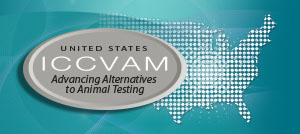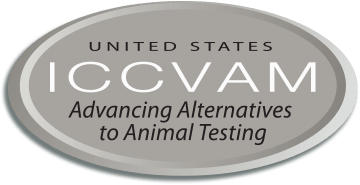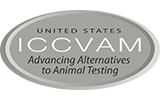Participation in the International Cooperation on Alternative Test Methods
The International Cooperation on Alternative Test Methods (ICATM) was created to foster dialog among national validation organizations. This dialog facilitates international cooperation in the critical areas of validation studies, independent peer review, and development of harmonized recommendations. ICATM includes member organizations from the European Union, United States, Japan, Canada, and South Korea. In recent years Brazil, China, Singapore, and Taiwan have participated in ICATM as observers.
ICATM Participant Organizations
- ICCVAM is an interagency committee of the U.S. government that coordinates technical reviews of alternative test methods and cross-agency activities relating to validation, acceptance, and harmonization of test methods. NICEATM administers ICCVAM and provides scientific support for its activities.
- EURL ECVAM (European Union Reference Laboratory for Alternatives to Animal Testing) is a unit within the Institute of Health and Consumer Protection in the European Union’s Joint Research Centre. EURL ECVAM coordinates the validation of alternative test methods in the European Union.
- JaCVAM (Japanese Center for the Validation of Alternative Methods) coordinates the evaluation of alternative test methods for the Japanese National Institute of Health Sciences, its parent organization.
- Health Canada’s Environmental Health Science and Research Bureau coordinates the evaluation of alternative test methods in Canada. The Canadian Centre for Alternatives to Animal Methods and its subsidiary, the Canadian Centre for the Validation of Alternative Methods, participate as partners with Health Canada in ICATM activities.
- KoCVAM (Korean Center for the Validation of Alternative Methods) is part of the National Institute of Food and Drug Safety Evaluation of the South Korean Food and Drug Administration.
- BraCVAM (Brazilian Center for the Validation of Alternative Methods) functions as the focal point within Brazil to identify or receive requests for test method validation. It works to implement appropriate validation studies with the National Network of Alternative Methods to the Use of Animals within the Brazilian Ministry of Science, Technology, Innovations, and Communications.
In most years, ICATM member organizations hold at least one coordination meeting. The most recent coordination meeting was convened in August 2023 in Niagara Falls, Canada, in conjunction with the 12th World Congress on Alternatives and Animal Use in the Life Sciences. Representatives from the United States, European Union, Canada, Japan, South Korea, Taiwan, Brazil, and the OECD Test Guidelines Programme met to discuss ongoing efforts to update OECD’s “Guidance Document on the Validation and International Acceptance of New or Updated Test Methods for Hazard Assessment,” informally known as “Guidance Document 34.”
Participants in the August 2023 ICATM coordination meeting felt that the traditional validation approach of conducting multi-laboratory ring trials to assess transferability and performance may not be practical for many new technologies upon which NAMs are based. Elements identified as key to successful validation included well-defined protocols that incorporate quality management principles; a diverse set of reference chemicals; clear acceptance criteria that consider standards other than prediction of in vivo animal data (e.g., human biological relevance); and coordinated peer review that minimizes duplication of effort.
ICATM representatives also attend or participate in meetings of the Scientific Advisory Committee on Alternative Toxicological Methods.
NICEATM participated in a peer review of a JaCVAM-coordinated validation study of the EpiSensA skin sensitization test method. The method utilizes a reconstructed human epidermis model to evaluate changes in gene expression of four markers of keratinocyte response to skin sensitizers, the second key event of the adverse outcome pathway for skin sensitization. A poster presented at the 2023 annual meeting of the Society of Toxicology (Reinke et al., Alternatives to Mammalian Models II session) summarized the validation study. The method will be under evaluation at OECD for inclusion in TG 442D in the 2024 review cycle. NICEATM and JaCVAM scientists and members of the EURL ECVAM advisory committee also participated in a peer review of the SENS-IS test method for skin sensitization.
The following ICCVAM workgroups had ICATM member liaison representatives during 2022 and 2023.
|
ICCVAM Workgroup |
ICATM Organizations with Liaison Members |
|---|---|
|
Acute Toxicity Workgroup |
EURL ECVAM |
|
In Vitro to In Vivo Extrapolation Workgroup |
JaCVAM |
|
Read Across Workgroup |
JaCVAM |



